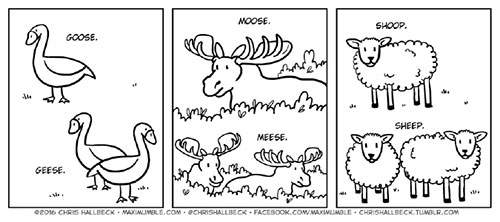|
We are familiar with numbers and the function they serve: We use and look at them just about every day. Recognizable enough in our checkbooks and calculators, numbers also have their own categories in writing.
For example, the following sentences contain both ordinal and cardinal numbers:
1. Donetta took first place in the spelling bee.
2. Aniyah has five framed professional certificates on her office wall.
3. I'll take seven of those éclairs.
4. This is the third time this summer they've played thrash-metal music at the community swimming pool.
(1. ordinal 2. cardinal 3. cardinal 4. ordinal) |
Ordinal numbers indicate rank, order, or position (e.g., first, third). They do not express quantities, an important distinction from cardinal numbers.
Cardinal numbers—also known as counting numbers—specify quantities (e.g., five, seven) but not order or rank, an important distinction from ordinal numbers.
Numbers in writing include another category as well: nominal numbers.
What Are Nominal Numbers?
Nominal numbers identify rather than count or order. They name or label something distinctively, such as a jersey number, mailing information, or a password.
Examples
I think that 88 is the football team's fastest wide receiver.
I'd like to find out how many Americans know where zip code 90210 is located.
Eddie, you should probably choose a security code other than 123456. |
As we can see, the underlined numbers do not provide information about a quantity or a sequence. Rather, they identify a person, a place, or an item of personal data.
Other examples of nominal numbers would be a passport number, a telephone number, and a house number in an address:
Watch for the suspect with U.S. passport 333444888, who is believed to be smuggling exotic pets into the country.
The state license number of the clown-car driver is P47-1503-0000.
The McFarlands live at 1254 Kings Court. |
Each of these is a nominal number. Another easy way to distinguish nominal numbers from cardinal and ordinal ones is simply to associate “nominal” with “name,” just as the nominative case in English grammar names or renames a sentence subject.
Nominal Numbers: Not Spelled Out
Because nominal numbers are specific identifiers, their digits are intrinsic to their function. They would not be spelled out as cardinal and ordinal numbers can be.
Cardinal: The room can accommodate fifty-five guests. (correct)
Ordinal: I do believe that's the ninetieth time you've listened to that album. (correct)
Nominal: The telephone area code of Billings, Montana, is four-zero-six. (incorrect) |
If a number is nominal, it will keep its digits:
| The telephone area code of Billings, Montana, is 406. (correct) |
Nominal Numbers: Starting a Sentence
Cardinal and ordinal numbers that begin sentences are typically spelled out:
Twenty-seven detentions are more than you should have during an average school year.
Two hundredth on the waiting list means Mariah can expect to not be in that self-help workshop this summer. |
Because their digits are inherent, nominal numbers that start a sentence would not be spelled out. At the same time, beginning a sentence with numbers as digits is not standard usage in daily formal writing and in many cases can be considered poor form.
To avoid starting a sentence incorrectly with a nominal number, we can simply recast it:
88 is the football team's fastest wide receiver. (incorrect)
The football team's fastest wide receiver is 88. (better)
Of the football team's wide receivers, 88 is the fastest. (better) |
Related Topics
Rules for Writing Numbers
Writing Dates and Times
Numbers: Words or Numerals?
|





